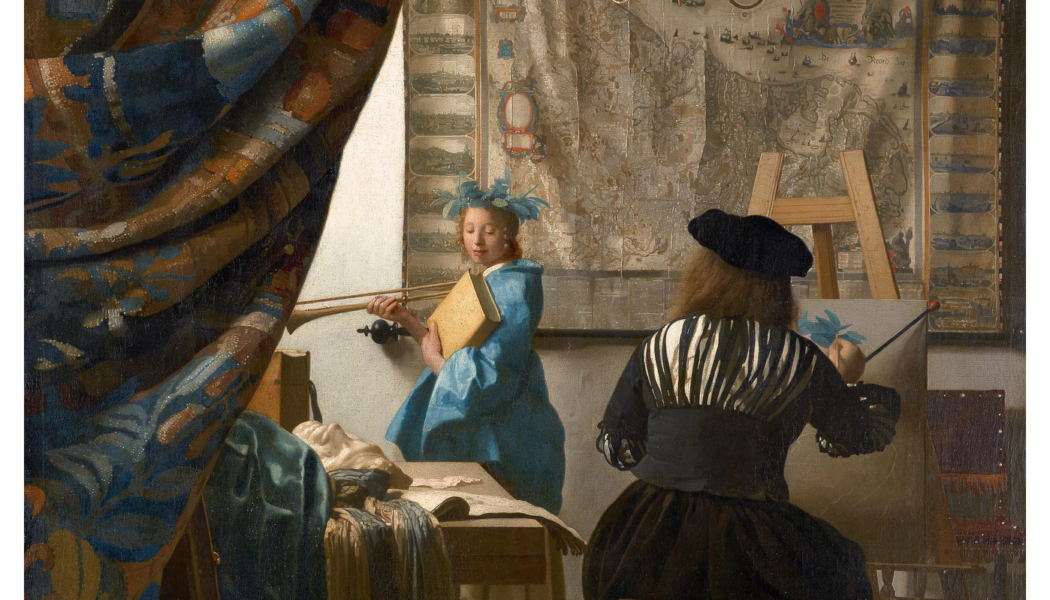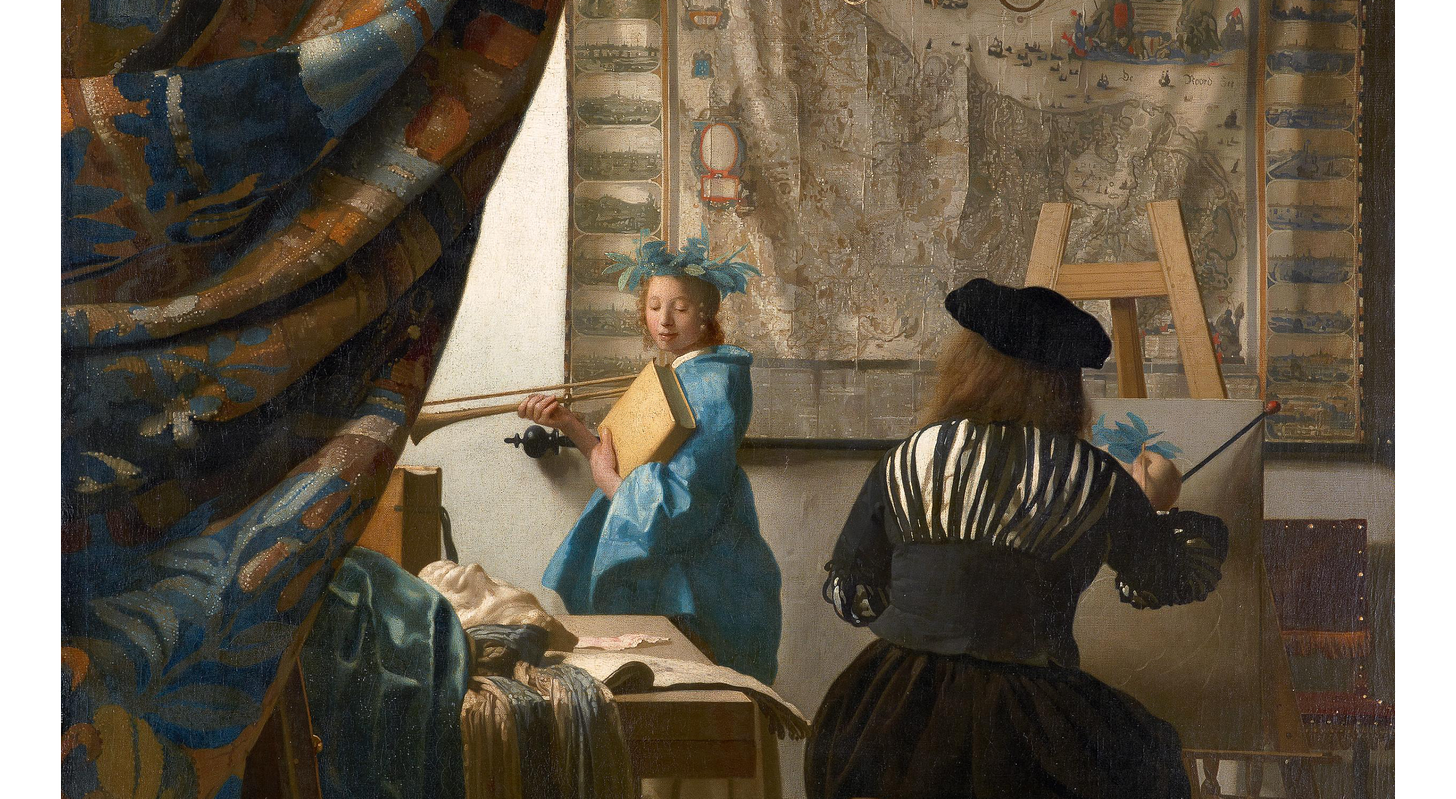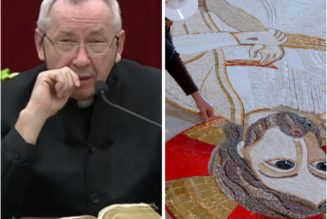Bertrand Russel, a philosopher of the twentieth century, wrote that envy is one of the most powerful causes of unhappiness. If we want to live well, we need to know the paths to follow and the paths to avoid. Envy can become a prison we create for ourselves. Why do we feel envy? And how can we break free from it? Or, better yet, escape it in the first place?
I know from my experience that envy can steal my peace. It often arises from comparisons where we see ourselves falling short of others, especially when we think we are just as “worthy” as the people to whom we compare ourselves.
Envy is one of the most powerful causes of unhappiness.
The Ancients on Envy: Sorrow Over Another’s Good
Aristotle writes that envy is sorrow over the good of another (Rhetoric 2.10).
The targets of our envy usually fall into the following categories:
And so, predictably, the professor envies the professor. The musician envies the musician. The painter envies the painter. In other words, we tend to envy people who are like us and who have enjoyed some good fortune in life.
Aristotle in the same text makes a striking observation about envy: we are sorrowful over what another has precisely because we think it should be ours.
There is a sense of injustice that someone else has “made it” and we have not. This feeling of being thwarted can lead to anger and even a desire for vengeance: to take away the good that the other person has—or hope that someone else does —because it is due more to you (or at least as much to you) than it is to them.
The sense of injustice directed at our peer who experiences good fortune is compounded if we perceive ourselves to be just as good or smart or resourceful as they are. And yet, we think, this other person has received the goods that we, apparently, in justice, deserve. The envious person sees this as intolerable.
Aristotle in the same text makes a striking observation about envy: we are sorrowful over what another has precisely because we think it should be ours.
To take a simple example, imagine someone who buys a house at the bottom of the market. They were fortunate when they needed to move jobs. But you’ve been saving for years and end up buying the same house at the top of the market for twice as much. You might understandably feel a little envious of the person who had the good fortune of buying when they did, especially if you have been more “responsible” in saving but ended up with a less desirable outcome.
Envy works like that, but it can surface in any domain of life: a missed promotion at work, the purchase of your house, the choice of your spouse, the health of your children, the welfare of your country, and the list goes on. These things are personal and can subject us to intense, even embarrassing, feelings of envy.
The Slippery Slope of Envy
To paint the picture a little more starkly, where does envy take us?
Gregory the Great, a theologian and pope (c. 540–604), observes that envy can give rise to a host of other maladies (Moralia, 31.5). These include gossip, detraction, delight over the misfortunes of others, and even hatred. Think about it:
-
Gossip. If we feel envious over someone’s good fortune, we might mention how they’re really not so great at what they do, even while using true examples. We knock someone down a peg because that’s where they belong.
-
Detraction. If that approach is not successful, one might share those shortcomings more publicly, beyond close acquaintances. This would be detraction. Such a tactic takes away some of their reputation that “should” really be ours.
-
Schadenfreude. If none of that works, one might still hope—as bad as this sounds—that the person experiences a reversal. This is a classic case of schadenfreude, again, cutting them down to size. If the envied person experiences misfortune, one delight in it—because it puts them back where they deserve, as if meting out what is really due to them.
-
Hatred. Finally, if gossip or detraction or misfortune fail to do their work, the person might become an object of hatred. They become offensive to think about as a reminder of what could have been and “should” have been yours.
All of this can sound a little extreme. And I think some personality types are more prone to envy than others. But you can begin to see how it can be a real obstacle to friendship, charity, and happiness. How can we avoid the trap of envy?
Mimetic Desire: Why We Want What We Want
What makes envy such a strange vice to experience, speaking from my own experience, is that we may not even really want what the other person enjoys!
The French sociologist Rene Girard writes about the phenomenon of mimetic desire: we learn to want what we want because we see other people who want it. Girard writes: “Man is the creature who does not know what to desire, and he turns to others in order to make up his mind. We desire what others desire because we imitate their desires.” (For a good introduction to this phenomenon, see Wolfgang Palaver’s scholarly study Rene Girard’s Mimetic Theory.)
Mimetic desire is triangular: it involves an object of desire, a mediator who presents that desire to you, and the plasticity of your own desire.
For example, your friend (the mediator of desire) gets the latest iPhone (the object of desire) so you now want the latest iPhone. Your co-worker (the mediator of desire) buys a house (the object of desire) so you now want to buy a house. Your roommate (the mediator of desire) is dating a banker (the object of desire) so you now want to date someone in the finance industry (or whatever). Maybe you never thought about the iPhone or the house or the banker. But now you do. Your desire mirrors or imitates the desires of those around you. Desire is mimetic.
Mimetic desire is triangular: it involves an object of desire, a mediator who presents that object to you, and the plasticity of your own desire.
This mirroring is not always bad. We can learn to desire good things by imitating the good things that others desire. But at least some of the time, and perhaps much of the time, mimetic desire can take us off track from our own tasks in life. It leads us to look over our shoulders instead of looking straight ahead.
This can be a strange cause of envy. We want what other people have because other people think that what they have is desirable, even if we ourselves do not really care one way or another. If someone seeks reputation and honor, living for ambition, the shiny prize could be anything—so long as others desire it and only a few can have it! This dynamic can be tricky to see. We need to disentangle our genuine desires from what everyone else wants and thinks we should want.
But if we break free from the ties of mimetic desire, I think a lot of envy would simply dissolve. Envy arises, in large part, from social comparison and imitative desire. The bigger question here is to ask: What do you really want? What is your life ultimately about? What are you aiming to accomplish before you die?
Center on those priorities and then move forward with them. Focus on your page and not on the page of your neighbor next door. This focus allows you to live your life and others to live their lives without making reality into a zero-sum game. True, there only gets to be one Taylor Swift, one Michael Jordan, one John D. Rockefeller, one Alexander the Great (if you can put all those in the same list).
The bigger question here is to ask: What do you really want? What is your life ultimately about? What are you aiming to accomplish before you die?
That is no loss to you! Go ahead and live the life you were made to live, with your interests, talents, passions, and opportunities. Some will be more famous than others. Some will make more money. Some will be more successful. But if we can be grateful for the ones in front of us, we will live happier lives.
Living with Open Hands
So, are we living with our fists clenched? Or with open hands?
A lot of the time, I think, my hands are clenched—holding on to what I have and hoping to make sure that I don’t lose any of it. When I open my hands it is often only to grasp more and more rather than to give away.
Living with open hands is a great cure for envy. It reminds us that what we have is not really ours in the first place. Life and everything that comes along with it is ultimately a gift—something that is given to us, not something that is ours by right. Envy looks at things that, we think, ought to be ours, when they are not.
And one truth of diverse spiritual traditions is this—whatever we have is given to us. Nothing is finally and totally our own. We have life, and all else, on loan for a time unknown to us. Envy dissolves in the face of the recognition that what we have is not our own and what we do have was never “ours” to begin with.
When envy strikes, that is a truth I will remember more.










